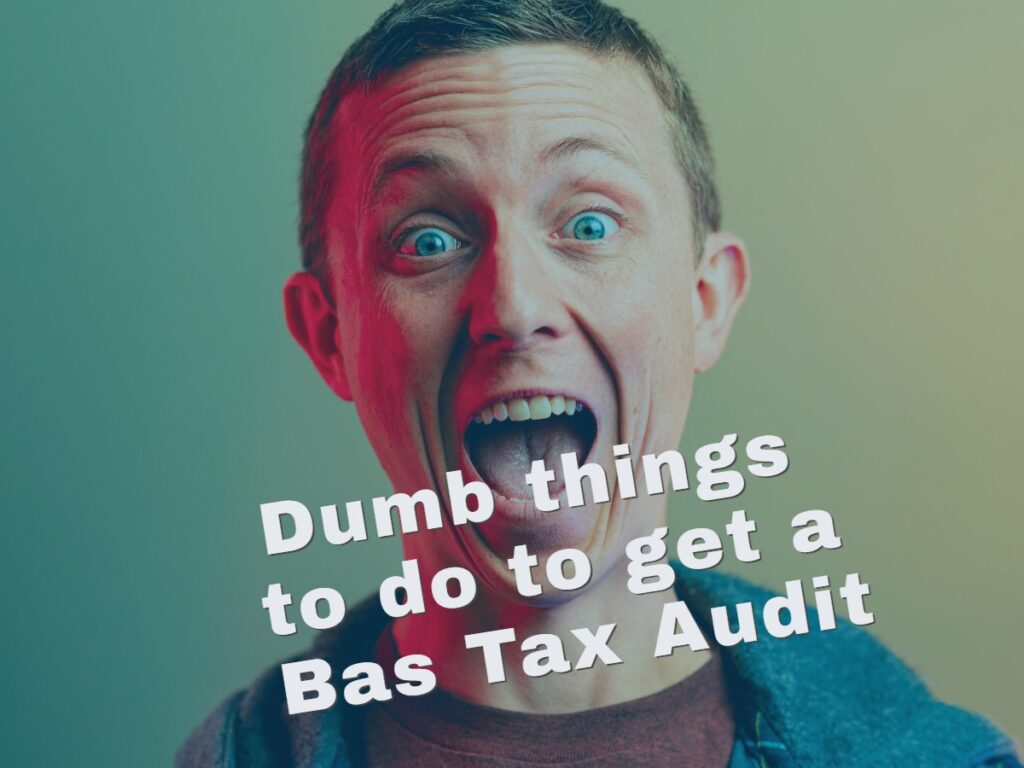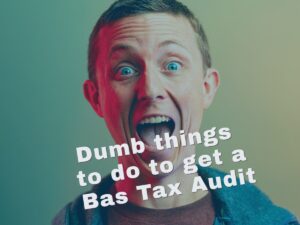A tax audit is often a result of business owners not doing something that’s the norm. Doing dumb things that alert the ATO that some things are not quite right.

It is becoming imperative that you prepare your GST records appropriately to avoid unnecessary scrutiny by the Taxation Office which may lead to a tax audit for your Bas. These include:
Failure to allow for car expenses for vehicles that are used partly for business purposes.
Claiming all the GST paid on the following expenses: (similar to last year )
o car operating expenses, a log book must be kept
o home electricity, – diary evidence floor area
o home rates,
o internet access and
o home telephone bills,
Partial Business Usage
When these items were only used partly for business purposes claim only part of GST. If you use computerised accounting software be careful with this one, as special procedures are required.
Claiming GST on non-business items.
Claiming all GST or not claiming GST when not applicable
o Most bank charges. Merchant fees charged by banks, for retailers to have credit card facilities, do have GST in them. Refer to the monthly merchant statement for the GST amount.
GST amounts are often not shown on normal bank statements.
o Motor Vehicle Registration fees.
o Stamp duty and most government fees.
o Rates on business premises.
Sales and GST
Not charging GST on all sales – NOT RECORDING ALL GST ON SALES
Not charging GST on the Sale of equipment
Partial GST
Assuming the GST is exactly one-eleventh of every amount paid. This assumption is not correct in the case of :
o Workers Compensation premiums, (which include GST-free stamp duty)
o Yellow Pages Advertisements paid by instalments, which often require all the GST to be paid “up-front”.
Failure to put the correct “tax codes” on receipts or payments when using a computerised accounting system
Take some time to understand what the codes are and the types of income/expense which each tax code should be used for. As a small business tax accountant, we can help you get it right.
Using “Cash accounting” when should be “accrual accounting”.
Not including “Instalment Income” for PAYG or using the correct rate.
Spending the time to get some of these rights may help you to avoid a tax audit and the ATO snooping around into your affairs


